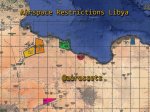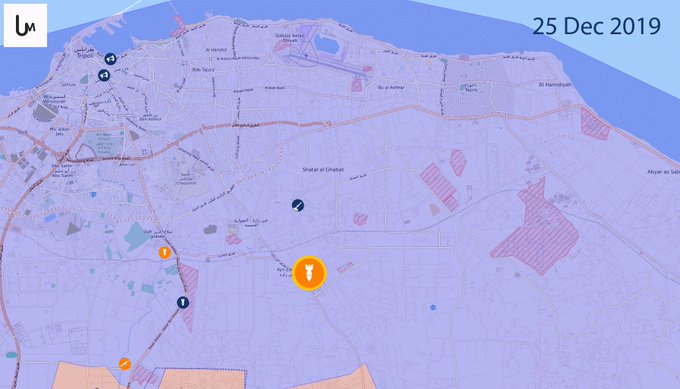jward
passin' thru
Mercenaries flock to Libya raising fears of prolonged war Jason Burke and Zeinab Mohammed Salih Tue 24 Dec 2019 02.00 EST |
| A new wave of mercenaries from Sudan is fighting in Libya, deepening concerns that the conflict in the north African state has descended into an intractable international war that could destabilise much of the region. Leaders of two different groups of Sudanese fighters active in Libya have told the Guardian that they had received hundreds of new recruits in recent months. Both groups were fighting with the Libyan National Army (LNA) led by General Khalifa Haftar against the internationally recognised government in Tripoli.Khalifa Haftar. Photograph: Philippe Wojazer/Reuters “A lot of young men [are coming] … we even do not have the capacity to accommodate these big numbers,” said one commander who is based in the south of Libya. The commanders said that there are at least 3,000 Sudanese mercenaries now fighting in Libya, significantly more than most previous estimates. Earlier this month the UN said the interference of fighters from Sudan in Libya was a direct threat to the security of the war-torn country. A UN panel of experts said in a 376-page report to the security council that the presence of the Sudanese has become more marked in 2019 and may lead to further instability. Libya has been in turmoil since a civil war in 2011 toppled Muammar Gaddafi, who was later killed. In the chaos that followed, the country was divided, with a weak UN-supported administration in Tripoli overseeing the country’s west and a rival government in the east aligned with Hafter’s LNA, each supported by an array of militias and foreign governments. 'Libya is ground zero': drones on frontline in bloody civil war Hafter launched a surprise military offensive in April aimed at capturing Tripoli but the offensive stalled, leaving both sides dug in and shelling one another along the city’s southern reaches with increasingly sophisticated weapons. Earlier this month Hafter, 76, said that his forces were preparing for a “decisive battle” to take full control of the city. 
While the LNA and the eastern government enjoy the support of France, Russia, Jordan, the United Arab Emirates and other key Arab countries, the Tripoli-based government is backed by Italy, Turkey and Qatar. Jordan, Turkey and the United Arab Emirates routinely and sometimes blatantly supplied weapons, with little effort to disguise the source” in violation of a UN arms embargo, the recent report said. But “neither side has the military capability to effectively decide the outcome to their advantage”. The LNA have also been reinforced by Russian mercenaries in recent months. Some of the biggest Sudanese groups based in Libya once fought in Darfur, the restive western region of Sudan, in a series of insurgencies against militia and troops sent by the repressive regime in Khartoum. The Sudanese mercenary commanders said the new wave of recruits included many who had fought against the rule of Omar al-Bashir, who was deposed in April when Sudan’s military withdrew their support after months of popular protests. One said that many had been recruited in Darfur in recent months while others had travelled from there to Libya to enlist. All the commanders interviewed said they hoped to return to Sudan to fight against the current transitional government, installed after al-Bashir’s fall. “I know that we are mercenaries and we are not fighting with honour and dignity …. but this is temporary, we will go back home after we are done with our mission here,” one said. Another commander said that fighting as mercenaries in Libya was the only way to obtain resources necessary to fight the Sudanese state in the future. He said he had not expected al-Bashir to be ousted but, though the veteran dictator’s fall had “changed the political equation”, the new transitional government in Khartoum was not different from the previous regime. “We don’t believe that Omar Al-Bashir is gone. We are now in Libya … but there are other battles awaiting for us in Sudan.” Another high-ranking Sudanese mercenary based near Tripoli told the Guardian that they had “no timetable” for leaving Libya but that any stay was temporary. “We are there just to have a secure base and to get weapons and other military logistics to go back to Sudan,” he said. Jalel Harchaoui, an expert in Libya at the Clingendael Institution in the Hague, said that the new influx of recruits could be a significant destabilising factor in the long term. “The younger people are coming in to earn money. It could be one year, two years or more but eventually the conflict will cool off. At some point they will start to return home [to Sudan],” he said. There are Sudan paramilitaries raped and assaulted protesters and medics The most recent UN report said that a thousand Sudanese troops from the RSF, which has been accused of major atrocities earlier this year and in Darfur, were deployed to Libya on 25 July 2019 by Mohamed Hamdan Dagalo, a warlord turned senior official also known as Hemedti. The Sudanese mercenaries are also involved in smuggling and other activities. One commander said he helped smuggle migrants hoping to travel to Europe across the frontier between Sudan and Libya, and the hostile desert. “You know when the militants have nothing to do, they have to work, so they sometimes smuggle people,” he said. Tim Eaton, a Libya expert at Chatham House, London, said mercenaries were known to extort money from smugglers and from migrants. “This usually means raising ‘taxes’ by either facilitating or impeding them,” Eaton said. One Sudanese commander said that the his troops played a crucial role in “liberating” the oilfields seized by Hafter’s forces. The claim is corroborated by previous reports from the UN panel of experts which said Sudanese mercenaries helped the LNA secure the country’s strategic “oil crescent”. “Without our help, they would not be able to liberate it, we contributed to 50% of the military work there,” he told the Guardian. Mercenaries flock to Libya raising fears of prolonged war | Libya | The GuardianHundreds of fighters from Sudan joining anti-government Libyan National Army
Topics |
Last edited:











